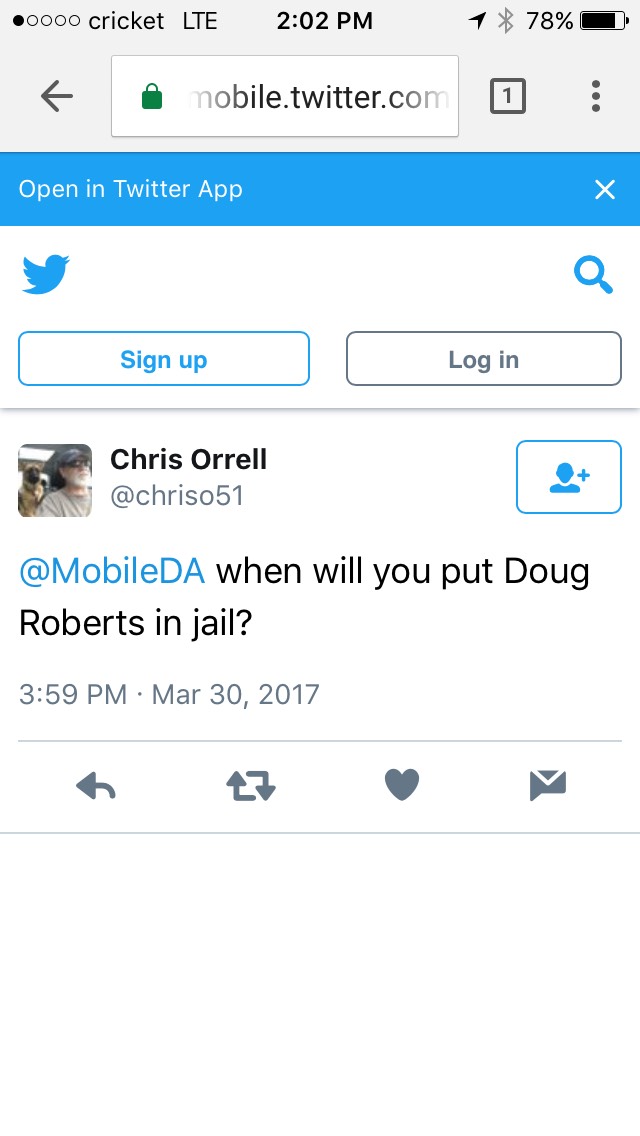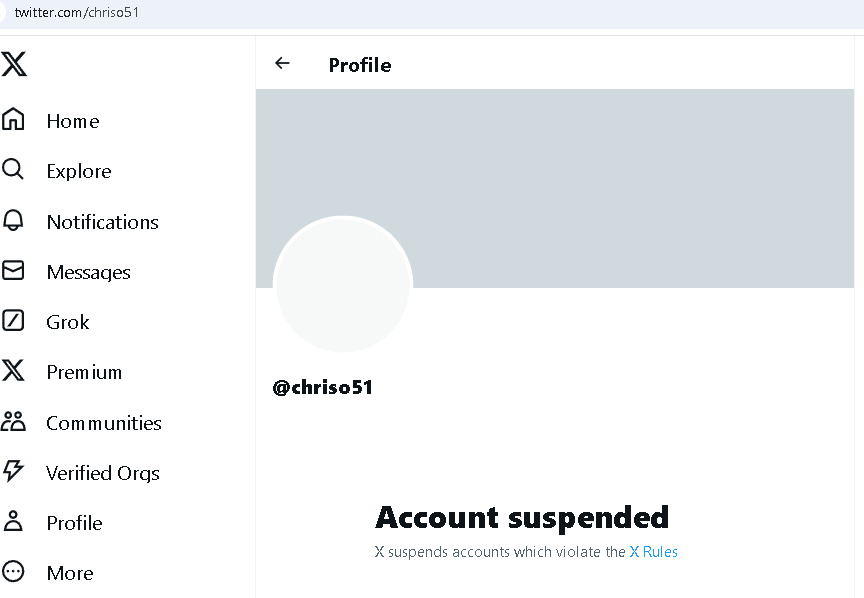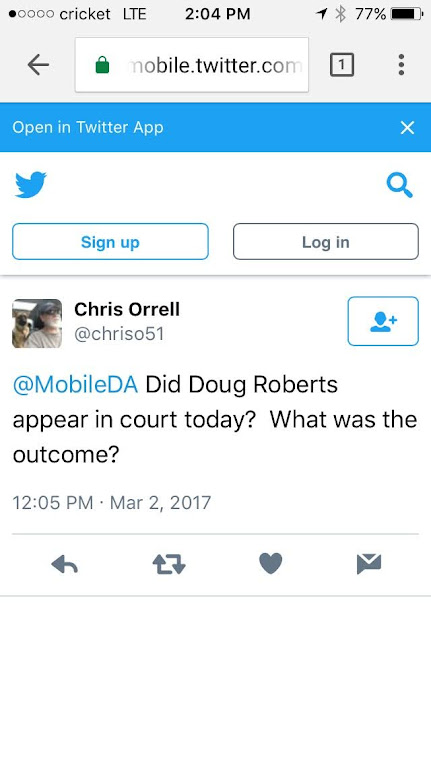Residents of the Wynnfield subdivision have long voiced concerns about their HOA president, Chris Orrell, alleging that he has engaged in personal attacks and harassment towards certain members of the community. These complaints have centered around Orrell’s behavior, which many describe as overbearing and vindictive. Some residents claim that Orrell has contacted local law enforcement and other government officials in an attempt to have individuals arrested, though much of this remained speculative—until a concrete incident brought his actions into sharper focus.

Chris Orrell Tweet to District Attorney
On March 30, 2017, Orrell took to Twitter, publicly calling for the prosecution of a fellow homeowner, Doug Roberts. In a tweet directed at the Mobile County District Attorney’s office, Orrell asked, “When will you put Doug Roberts in jail?” Despite not providing any evidence or legitimate basis for such a request, Orrell publicly singled out Roberts, seemingly accusing him without cause. This public outburst raised serious questions about Orrell’s motivations and the ethics of his conduct as HOA president.
The tweet was alarming not only because it involved an unfounded legal accusation but also because it demonstrated a troubling abuse of power. Residents were concerned that the HOA president, in his official capacity, was using his position to personally target and harass a homeowner. Many felt that this was a form of bullying, where Orrell was using his influence to make life difficult for individuals who either disagreed with him or stood up to his leadership.
The tweet was not an isolated incident, but it became a clear turning point for many homeowners, who began to feel that their community was being governed by someone who lacked the professionalism and impartiality needed to lead. In the aftermath of this event, some residents sought legal recourse, hiring attorneys to help them deal with what they described as ongoing harassment from Orrell. These homeowners argued that they should not be subjected to such personal attacks and abuses simply because they had chosen to live in a particular neighborhood.
The situation has raised broader concerns about accountability within the HOA. Many residents question whether Orrell’s actions are reflective of a larger pattern of misconduct and whether his leadership is putting the well-being of the community at risk. Homeowners have expressed frustration that the HOA, which is supposed to serve and support the community, has instead become a platform for personal vendettas and intimidation.
The ongoing harassment has left some residents feeling powerless, as they are forced to confront the reality that their HOA president may be using his position to settle personal scores, without regard for the wellbeing of the community as a whole. For those affected, the situation has become more than just a matter of poor governance—it has become a matter of personal safety and peace of mind.
As the community grapples with these issues, there are growing calls for greater transparency, oversight, and accountability within the HOA. Many residents feel that the leadership should be held to higher standards, particularly when it comes to ensuring that their actions are fair, just, and in line with the interests of the entire neighborhood. Until changes are made, residents remain deeply concerned about the ongoing impact of Orrell’s behavior on the harmony and well-being of the Wynnfield subdivision.
Twitter later suspended Orrell’s account for violating rules:


